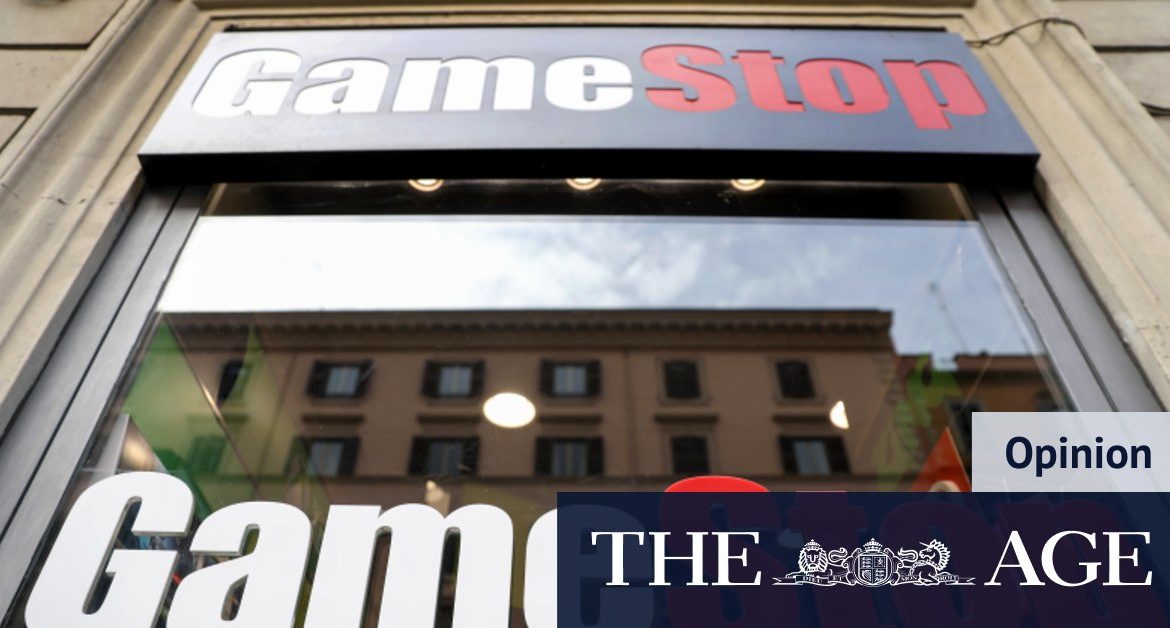In any reading, the most unusual thing about Wall Street’s being challenged by a rowdy band of Redditors is that it took so long to happen. This kind of populist revolt — internet-based insurgents gleefully pulling down the pants of the unsuspecting establishment — has been happening for years, to many powerful institutions.
In fact, it’s harder to think of a pillar of the global establishment that hasn’t been trampled by a similar stampede in recent years. Book publishers, movie studios, restaurant chains — all of them have, in some way, been forced to cede power to their online critics. Our politics, too, have been transformed by internet activists, with TikTok teens disrupting presidential rallies and Twitch-streaming memelords storming the Capitol.
Loading
No matter what their goals are — moving a stock, overturning a presidential election, getting the graphics on a Sonic the Hedgehog movie changed — these internet-based insurgencies tend to follow a similar pattern. One day, a group decides to take action against a system it feels is immoral or corrupt. Members identify structural weak points (a vulnerable political party, a risk-averse studio head, an overexposed short position) and figure out creative ways to exploit them, using social media for leverage and visibility. With enough highly motivated people pushing in the same direction, they eventually prevail — or get enough attention that it feels like they did.
Wall Street was among the last powerful institutions to be overrun by online populists, in part because it had a higher barrier to entry. Anyone with an internet connection and a Twitter account can start a hashtag campaign, but because trading stocks costs money — and required some level of expertise and time commitment — it was mostly left to professionals.
Wall Street rebounded strongly on Thursday after heavy losses on Wednesday. Credit:AP
Smartphone-based trading apps like Robinhood changed that, by introducing commission-free trades and an interface that made executing a gamma squeeze as straightforward as ordering a burrito from Uber Eats. Suddenly, millions of amateurs could organise themselves, generate their own market research and investment theses, drum up excitement in Reddit threads and TikTok videos, and enter the casino with the big boys. (Whether storming the high-roller tables has helped them financially is another question entirely.)
While watching the GameStop drama, I’ve been reflecting on what author Martin Gurri calls “the revolt of the public.” Gurri writes that the internet has empowered ordinary citizens by giving them new information and tools, which they then use to discover the flaws in the systems and institutions that govern their lives. Once they’ve discovered these shortcomings, he writes, these citizens often rebel, tearing down elites and dominant institutions out of anger at having been lied to and withheld from.
The result, Gurri writes, is a kind of vengeful nihilism, an urge to burn down the establishment without a clear sense of what’s supposed to replace it.
To me, that sounds a lot like GameStop. Retail investors, armed with new kinds of tools and information that allow them to compete on equal footing with professionals, are looking at the Masters of the Universe and going, “Really? Those guys run the market?“
In other words, this is not just a speculative bubble or a stupid prank. It’s an authority crisis. And even if GameStop stock crashes or regulators step in and call off the party, these disillusioned day traders will keep trying to create chaos for the elites they feel have spent decades profiting at their expense.
The rebels may not win in the long run. Institutional power has a way of reasserting itself after sudden shocks. Eventually, the National Guard arrives, the studio head gets a backbone, and the regulators show up. Already, we are seeing the GameStop brigade running up against the limits of its power.
On Wednesday, Discord — a chat app that Reddit day traders had turned into their virtual casino floor — banned the Wall Street Bets server, citing violations of its hate speech policy. On Thursday, Robinhood — an app whose entire public brand consists of “stand with the little guy” messaging — blocked users from buying shares in GameStop and several other stocks that the r/WallStreetBets crowd had targeted.
Loading
But for the Reddit day traders, the important victory was always the symbolic one. They might lose their shirts, but they’ve sent the message that with enough passion and rocket ship emojis, a crowd of profane, irreverent degenerates — again, their words, not mine — can turn the stock market on its head.
The hordes are here, and Wall Street will never be the same.
The New York Times
Market Recap
A concise wrap of the day on the markets, breaking business news and expert opinion delivered to your inbox each afternoon. Sign up here.
Most Viewed in Business
Loading







